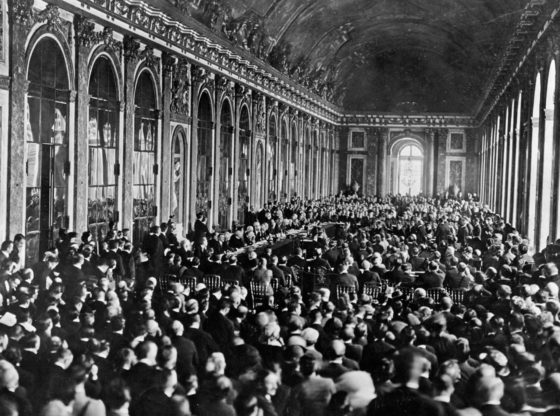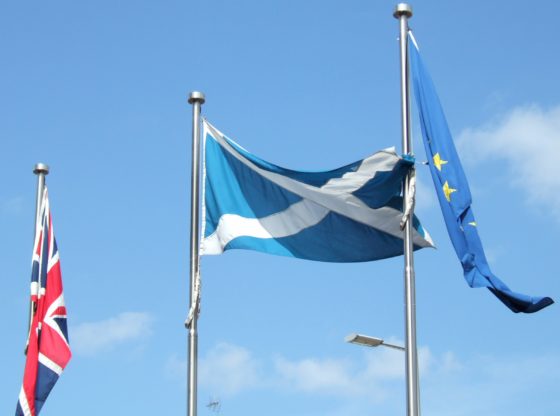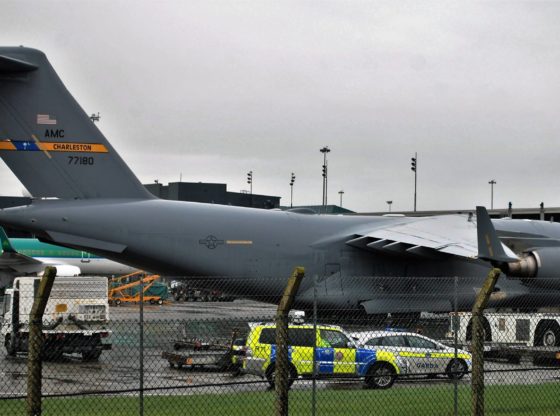In this article, Maya Konforti of L’Auberge des Migrants discusses the challenges associated with helping migrants arriving in northern France. Amidst a hardening political stance towards migration, on both sides of the English Channel, it’s becoming increasingly difficult for organisations to provide migrants with the protection and comfort they need.
L’Auberge des Migrants is a humanitarian nongovernmental organisation (NGO). It was founded in 2008 to help the refugees present in the Calais region in northern France. Refugees from various countries have been coming to the area since the 1990s, ahead of their attempts to enter the UK and claim asylum there. They seek to achieve this by hiding in lorries and trains, before they cross the English Channel.
Until 2014, the main activity of l’Auberge was to prepare and serve food to refugees, in a specially designated place set up by the city of Calais. However, this facility was shut down in the summer of that year. Then in the fall of 2014, the refugee population in the area started increasing slowly, and it kept on rising throughout 2015. This led to the creation of what became known as ‘The Jungle’ which quickly became the largest shanty-town in all of Europe.
These developments led l’Auberge to start partnering with a couple of brand-new British NGOs; Help Refugees, and Refugee Community Kitchen. At the height of The Jungle, which was ‘home’ to as many as 10,000 refugees at one time, l’Auberge organised the daily work of between 150 - 200 volunteers in a 3,000 square metre warehouse. Meals and dry food for 4,500 people were prepared and distributed daily. We also oversaw the building of 1,500 wooden shelters, each large enough for four people.
Though the numbers of refugees have diminished greatly, there are still around 1,000 at this present time. Many of them are minors, who often need special levels of assistance.
Since the complete dismantling of The Jungle, in October 2016, though the numbers of refugees have diminished greatly, there are still around 1,000 at this present time. Many of them are minors, who often need special levels of assistance. So l’Auberge still operates on a daily basis, with a team of between 50 - 70 volunteers. We continue to assist those refugees still present in Calais, and also in Grande-Synthe (Dunkirk).

We have partnered with five more NGOs; one French (Utopia56) and 4 British (Refugee Info Bus, School Bus Project, Refugee Womens Centre and Refugee Youth Service). The volunteers distribute food, sleeping bags, blankets, clothing, shoes, hygiene kits, and firewood. However, the French government is intent of preventing the creation of another camp in Calais, despite the need for such a facility.
In order to enforce this position, it has been ordering the police to confiscate and destroy all those belongings we distribute to refugees. The police throw the sleeping bags, and other things, into a garbage truck which then takes everything to the dump. This forces us to continually collect more and redistribute. Most of those items we source and distribute are used and donated but we also buy new goods, in bulk, when we run out of stock.
The police do everything they can to discourage refugees from staying in Calais. They are continually chasing them from their resting places, frequently using teargas to do so. As a result, the refugees now survive in conditions far worse than when The Jungle existed.
Added to this, the police do everything they can to discourage refugees from staying in Calais. They are continually chasing them from their resting places, frequently using teargas to do so. As a result, the refugees now survive in conditions far worse than when The Jungle existed.
The French government has also attempted to stop the work of l’Auberge by demanding that we rebuild our kitchen to restaurant standards. Thanks to the generosity of British and French citizens, we collected the 100,000 Euros we needed to comply with the government’s demands, thus allowing us to counteract their efforts to shut us down. Together with other French NGOs, l’Auberge took the French government to court on this issue and succeeded in forcing it to provide refugees access to water, toilets, and showers.

President Macron’s hardened immigration policy, coupled with the ‘zero-migrants’ attitude of the current Mayor of Calais, has forced l’Auberge to spend more time communicating the day-to-day experiences of migrants on the ground, in an effort to raise awareness about the issues at stake, as well as highlighting possible solutions. Our organisation also works closely with other associations in Northern France and we form part of the ‘Etats Généraux des Migrations’, a conglomerate of nearly 500 associations and collectives throughout France, intent on proposing viable and humane solutions to the issue of migration.
This year, the association is also organising a ‘Long Citizen’s March’ in order to try to mobilise as many citizens as possible, and to try to urge a more welcoming type of politics around migration. The march - which will occur between 1 May and 17 July - will begin at Vintimiglia, on the Franco-Italian border, and finish at Dover.

Our work faces many enduring challenges. L’Auberge - like her partner NGOs - is financed almost exclusively through private donations. In 2017, our budget amounted to 600,000 Euros. Ideally, our annual budget would be far higher.
We must also find ways to stay strong in the face of a government which considers our various organisations to be hindering its actions against migration and migrants. As such, we must find the right balance between our humanitarian actions, and our political and legal ones. Only yesterday, one of the volunteers from l‘Auberge was apprehended by police for giving firewood to a small group of refugees for their fire; he was then charged with starting the fire, despite the fact that the fire in question was actually burning before he arrived on site.

The dynamics of French-UK politics are also relevant. The new agreements between President Macron and Prime Minister May confirm the closing of the border. However, refugees will keep coming to Calais and will continue attempting to cross the border, despite the efforts of the French authorities to discourage refugees. Also, the Dublin regulation, which requires refugees to apply for asylum in the first European country they set foot in (which is nearly always Italy, Greece, or Bulgaria), makes it impossible for people to be able to stay In France, even if that was their preference. As such, their last option is to try and reach the UK.
The aim of l‘Auberge is to keep raising awareness, both in France and in Europe, about the plight of refugees everywhere, and what must be done to offer them protection and comfort. In Calais, we are very thankful that many British citizens are still very involved in giving helping, both with donations and their time. The work we do is exhausting, and we constantly need new people to get involved. And, more than ever, we need donations to help us support the refugees with basic material needs.
As governments on both side of the English Channel take a harder stance on migration, our work will continue, despite the difficulties.
Maya Konforti is the Secretary of l’Auberge des Migrants. She has been intensely involved with the refugee situation in Calais since 2014.
Website: www.laubergedesmigrants.fr Facebook: l’Auberge des Migrants Twitter: @Laubergecalais
Feature image: Refugees awaiting the distribution of food. Calais. Image: L’Auberge des Migrants.











